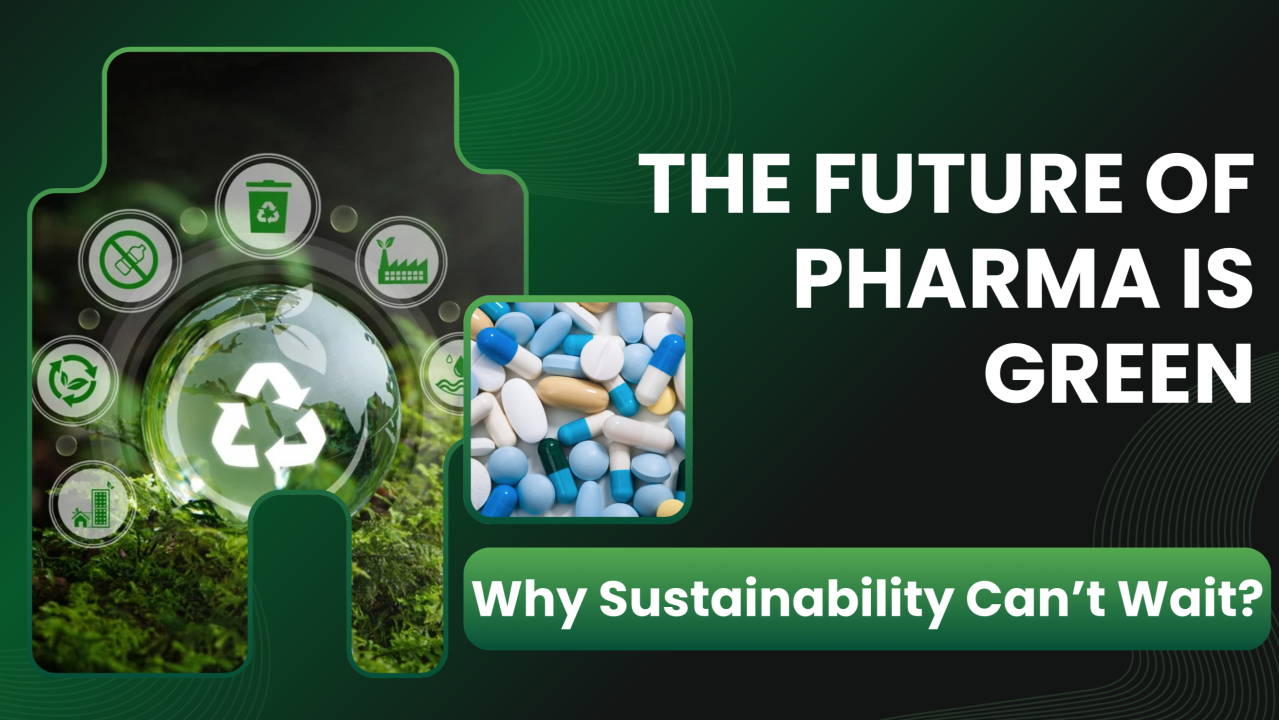
In the pharmaceutical industry, we often pride ourselves on advancing health through innovation, safety, and effective treatments. But as we look to the future, there’s an additional, urgent responsibility on our shoulders: sustainability. Today, the environmental impact of our industry can no longer be overlooked. To build a truly resilient, responsible pharma sector, we need to integrate sustainability into our DNA.
At Sigachi Industries, our guiding principle is to create a “Healthier, Happier, and Joyful World.” For us, that mission goes beyond producing quality health products. It’s also about ensuring our operations and processes have a minimal environmental footprint, safeguarding the world we share with future generations.
What Does Sustainability Mean in Pharma?
For many industries, sustainability has become a standard part of the conversation, but in pharma, there are specific challenges and nuances. Here are some of the ways we can turn sustainable aspirations into concrete action:
Green Chemistry and Process Innovation
Traditionally, pharmaceutical manufacturing can be resource-intensive and generate significant waste. Adopting “green chemistry” principles is one way we can reduce environmental impact at the source. For instance, by designing safer chemical reactions, we can minimize toxic by-products, reduce solvent use, and even improve energy efficiency. This shift isn’t just about cleaner production; it’s about creating processes that are efficient, economical, and environmentally conscious. But green chemistry requires an industry-wide push—from regulatory bodies to manufacturing partners. When the entire ecosystem supports green practices, everyone benefits.
Ethical Sourcing and Sustainable Supply Chains
Every product we manufacture depends on the raw materials we source, from specialized chemicals to natural ingredients. A sustainable approach here means being intentional about where, how, and from whom we procure these materials. Ethical sourcing involves working with suppliers to reduce environmental degradation, limit emissions, and even protect biodiversity. For example, ensuring the conservation of forest areas and preventing soil depletion are steps that make a significant difference. At Sigachi, we’re continuously refining our supplier relationships to build a supply chain that’s as sustainable as it is robust.
Energy Efficiency and the Push for Renewable Power
The energy demand in pharmaceutical manufacturing can be significant, and while the transition to renewables is not always straightforward, every incremental improvement counts. At Sigachi, we’ve been actively exploring ways to reduce energy usage at our facilities—whether through technology upgrades, efficiency audits, or energy recovery systems. Additionally, integrating renewable sources, like solar and wind, can provide long-term cost savings and resilience against fluctuating energy prices. The challenge is often balancing upfront investment with long-term gains, but it’s a path we’re committed to exploring for sustainable growth.
Embracing a Circular Economy and Reducing Waste
In an industry where packaging and waste can easily pile up, there’s tremendous value in adopting circular economy principles. This means rethinking product design, exploring biodegradable and recyclable materials, and minimizing excess packaging. Waste reduction also applies to the production process—where recycling solvents and reusing materials whenever possible should be a priority. At Sigachi, our focus is on practical, actionable steps to minimize waste, reduce our carbon footprint, and contribute to a cleaner world.
Why Sustainability is Essential for the Future of Pharma
The link between environmental health and human health is undeniable. Climate change, pollution, and resource scarcity directly affect the communities we serve and, ultimately, our patients. A sustainable approach isn’t just a feel-good measure; it’s an imperative for long-term industry success. Here’s why:
- Strengthened Industry Resilience: Sustainable practices contribute to resource conservation, which in turn reduces operational risks and costs. A resilient supply chain, driven by sustainable sources, is less vulnerable to disruptions.
- Increased Trust with Communities and Stakeholders: Today’s consumers, investors, and regulatory bodies demand more from us. A commitment to sustainability signals our dedication to corporate responsibility and accountability, enhancing our reputation and stakeholder relationships.
- Improved Employee Morale and Retention: Talented professionals today want to work for companies that stand for more than profit. A strong sustainability commitment can attract like-minded individuals who share a passion for making a difference.
Leave a Reply